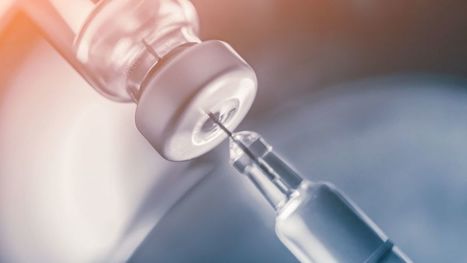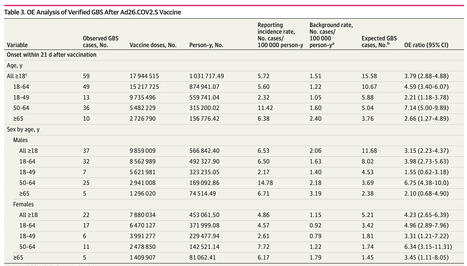Two people who received Pfizer's respiratory syncytial virus (RSV) vaccine during a clinical trial were later diagnosed with Guillain-Barre syndrome, and the US Food and Drug Administration has asked Pfizer to conduct a safety study if the shot is approved, according to agency documents released Friday. The cases were confirmed in two adults in their 60s who were among 20,000 vaccine recipients in Pfizer’s Phase 3 clinical trial. One person’s illness had completely resolved after three months, and another was improving after six months. There were no Guillain-Barre cases among people who didn’t receive the shot. “Given the temporal association and biological plausibility, FDA agrees with the assessments of the investigators that these events were possibly related to study vaccine. … Therefore, [Guillain-Barre] is being considered an important potential risk,” the FDA says in the documents, which were released ahead of a meeting of its independent vaccine advisers, the Vaccines and Related Biological Products Advisory Committee, on Tuesday and Wednesday.
The committee is scheduled to discuss and make recommendations on RSV vaccines for adults 60 and older from Pfizer and GSK. Guillain-Barre syndrome is a rare neurological disorder in which the immune system attacks its own nerves, causing muscle weakness and sometimes paralysis. Although most people recover completely, some cases can be fatal or have lasting effects. The incidence of Guillain-Barre is about 1.5 to 3 cases for 100,000 adults over age 60 in the US annually, according to the FDA.
“Given the higher than background rate of GBS observed in the Phase 3 study, FDA will recommend a postmarketing study and enhanced surveillance for further evaluation of GBS and other immune-mediated demyelinating conditions with postmarketing use,” the FDA says. In a briefing document submitted for next week’s meetings, Pfizer says that the cases have other possible explanations and that its shot is a “well-tolerated and safe vaccine, with a benefit-to-risk ratio that is favorable.” The company says it will conduct a safety study on Guillain-Barre syndrome if its RSV shot is approved. RSV is a highly contagious virus that causes flu-like illness in people of all ages that increases in severity with age. According to the US Centers for Disease Control and Prevention, RSV is responsible for an estimated 177,000 hospitalizations and 14,000 deaths per year among adults 65 or older. There are no vaccines approved for immunization against RSV in either children or with adults. The Pfizer vaccine was 66.7% effective at preventing moderated lower respiratory tract illness with two or more symptoms and 85.7% effective at preventing severe illness, the FDA documents say. GSK’s RSV vaccine candidate for older adults was 83.5% effective at preventing severe lower respiratory tract disease. The company similarly reported a potential case of Guillain-Barre syndrome among vaccine recipients but said there was insufficient evidence to confirm a diagnosis. The FDA considers the case to be related to the vaccine and said it will review GSK’s safety plan. Data from both vaccines was discussed Thursday during a meeting of the CDC’s Advisory Committee on Immunization Practices. The working group concluded that the vaccines “demonstrated significant efficacy against lower respiratory tract illness caused by RSV among older adults” but that “post licensure surveillance for both safety and vaccine effectiveness will be critical” if the vaccines are approved by the FDA.



 Your new post is loading...
Your new post is loading...











